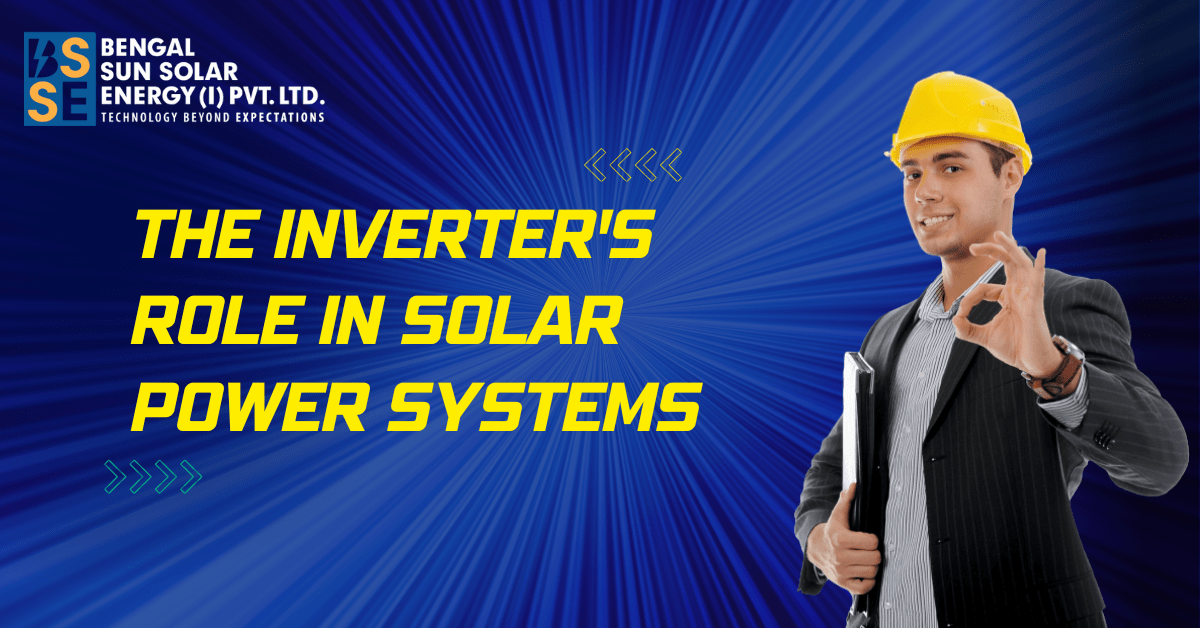When it comes to setting up a solar power system, one of the most crucial components you need to consider is the inverter. Inverters play a pivotal role in converting the direct current (DC) electricity generated by your solar panels into alternating current (AC) electricity that can be used to power your home or business. Choosing the right type of inverter is essential for optimizing the performance of your solar plant. In Andaman, Bengal Sun Solar Energy (BSSE) stands out as the best solar plant installers, and they understand the importance of selecting the right inverter for your solar system.
The Inverter’s Role in Solar Power Systems
Before delving into the types of inverters available, it’s important to understand the functions of an inverter in a solar plant installation:
- DC to AC Conversion: Solar panels generate electricity in the form of direct current (DC), which is then converted into alternating current (AC) by the inverter. AC electricity is what most appliances and the grid use.
- Maximizing Energy Production: Inverters are responsible for optimizing energy production by tracking the maximum power point (MPPT) of your solar panels. This ensures that you get the most electricity from your panels at any given moment.
- Safety: Inverters also play a role in ensuring the safety of your solar system. They disconnect your solar panels from the grid during power outages to prevent back-feeding and protect utility workers.
Types of Inverters for Solar Plant Installation
Now, let’s explore the various types of inverters available and why choosing the right one matters:
-
String Inverters:
Traditional Choice: String inverters are a common and cost-effective choice for smaller solar systems. They’re installed in a string, where multiple solar panels are connected to one inverter.
Efficiency: They are efficient in converting DC to AC power and come in various sizes to accommodate different array configurations.
Drawback: One drawback is that if one panel in a string is shaded or malfunctions, it can affect the entire string’s performance.
-
Microinverters:
Individual Panel Optimization: Microinverters are attached to each solar panel, allowing for individual panel optimization. This means that shading or issues with one panel won’t impact the performance of the entire system.
Efficiency: They are highly efficient, as they operate independently, maximizing energy production.
Cost: Microinverters can be slightly more expensive than string inverters due to their individual panel setup.
-
Hybrid Inverters:
Battery Integration: Hybrid inverters offer the capability to integrate energy storage systems, allowing you to store excess energy for later use.
Grid Connectivity: They can also operate in both grid-tied and off-grid modes, providing flexibility in energy management.
Versatility: Ideal for areas with unreliable grid connections or for those looking to achieve energy independence.
Choosing the Right Inverter with Bengal Sun Solar Energy
When it comes to selecting the right inverter for your solar plant installation in Andaman, Bengal Sun Solar Energy (BSSE) is your trusted partner. As the best solar plant installers in the region, BSSE offers expert guidance in choosing the most suitable inverter type based on your specific needs, energy goals, and budget.
Whether you opt for string inverters, microinverters, or hybrid inverters, BSSE ensures that your solar system is designed and installed to deliver optimal performance and efficiency. Plus, their commitment to quality and customer satisfaction ensures that your solar investment will provide you with clean, reliable energy for years to come.
